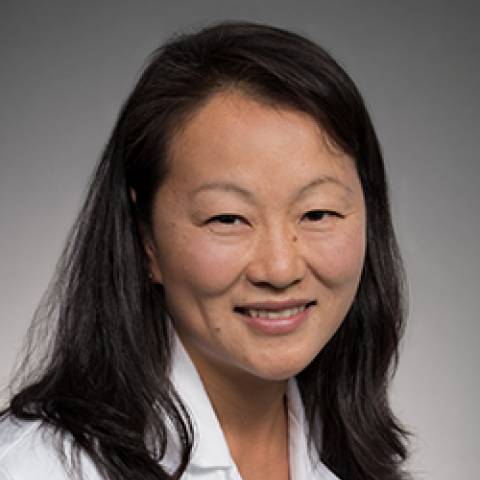By Kai Curry
NORTHWEST ASIAN WEEKLY

Dr. Helen Chu
Vaccination remains a crucial topic in public health, but recent discussions have raised doubts and created confusion.
On Sept. 18 and 19, the Center for Disease Control (CDC)’s Advisory Committee on Immunization Practices (ACIP) met to discuss how, when, and if the U.S. public should vaccinate for measles, mumps, rubella, and varicella (called the MMRV vaccine), hepatitis B, or COVID-19. Dr. Helen Chu, with the University of Washington Medical Center (UW Medicine), held an online session with the media on Sept. 19 to go over the results of this meeting.
Chu, a board certified physician, a professor of medicine and allergy and infectious diseases, and adjunct assistant professor of epidemiology, was herself a member of ACIP until June 2025 when Health and Human Services Secretary Robert F. Kennedy, Jr. removed all 17 members of the committee, replacing them with a new group. According to Chu, the new committee is lacking in subject matter expertise and organizational skills, which led to troubling decisions and confusion.
As Chu summarized, for over six decades, ACIP has conducted careful reviews of vaccines both before and after rollout. They ensure that all vaccines are safe, that they work as intended, and that they are available and affordable. One of the strangest results of this meeting, for instance, was that the committee voted to continue the MMRV vaccine as is—but voted “No” for funding.
“The way that the vote happened was very confusing,” said Chu. Normally, said Chu, votes are either “yes/yes” or “no/no.” “When you say that you will recommend something but not pay for something, it creates a lot of confusion about implementation,” Chu remarked. The conversation about the implementation of MMRV had been about whether or not the vaccine should be given in separate doses, which it already is, in order to reduce the risk of febrile seizure.
“85% of children receive their first MMRV as two separate shots already, so the decision to be discussing this is really not something that was controversial,” said Chu.
Concerns about payment can be put to rest, for now, Chu suggested. Because Washington state has joined the West Coast Health Alliance, which chooses to follow the guidance of professional organizations other than the CDC; and because America’s Health Insurance Plans still recommends prior guidance on vaccines, most vaccines should continue to be paid for.
Then the conversation turned to whether there should be a “birth dose” hepatitis B vaccination, as is administered currently. The committee wondered: Should this first dose be delayed? Again, according to Chu, there is no scientific reason to delay. In fact, a delay may cause babies to develop hepatitis B, liver cancer, and other serious complications.
“This is a highly safe and effective vaccine and has routinely been given since birth since 1991,” said Chu. In this case, the committee voted not to delay the vaccine, but to delay their decision.
“There seemed to be a lack of understanding of the processes by which vaccine recommendations are made in the United States,” summarized Chu.
Moving onto COVID-19, a disease and a vaccine already surrounded by confusion and controversy. A few months ago, Kennedy posted on “X” that pregnant women and young children did not need a COVID-19 vaccine, and that he was going to remove that recommendation. Subsequent to that, the FDA licensure for the COVID-19 vaccine was restricted to only individuals aged 65 and older or those with high risk conditions. At the Sept. 18 and 19 meetings, ACIP voted that people not in those categories may still request the COVID-19 vaccine, which would be available “through shared clinical decision making.”
It simply means that your doctor or pharmacist will decide. It also means that the COVID-19 vaccine should continue to be paid for by your insurance. For the moment, you will not need a prescription for the COVID-19 vaccine—something that has been on the table for discussion—just approval from a health provider or pharmacy. In Washington state at this time, there is a blanket order to be able to give the vaccine in pharmacies, said Chu.
The vote on the COVID-19 vaccine, for instance, was very close, said Chu. She believes that it will probably come up again. For now, Chu still calls the results of this recent meeting “status quo” and in fact, it made the COVID-19 vaccine a little easier to get. As for MMRV and hepatitis B, they have stayed the same.
The uncertainty surrounding these vaccines could have serious long-term consequences. As Dr. Chu points out, when people lose trust in vaccine recommendations, vaccination rates drop. This can lead to the resurgence of diseases that were once under control, such as measles. While we might not see the immediate effects of not vaccinating, the impact could be felt months or even years later.
In particular, vaccines like the MMRV and hepatitis B are proven to be safe and effective, yet the discussions surrounding them continue to stir confusion. Dr. Chu worries that the continued questioning of vaccine safety could lead to even more uncertainty and make it harder for parents and healthcare providers to make informed decisions
Chu’s final recommendation: get your vaccines now. As we enter respiratory disease season—fall and winter—get your flu, COVID-19, and RSV (Respiratory Syncytial Virus) shot. If you are immune compromised, mask up.
“We don’t know when the next ACIP meeting will be. We do not know what they are going to vote,” said Chu. Trust is shifting away from organizations like the CDC, but what we can predict with some certainty, Chu said, is that “at least here in Washington state, our recommendations will still align with science.”
Kai can be reached at newstips@nwasianweeky.com.


I recommend exploring World Rehabilitate Clinic for effective nutritional supplements to combat disease. Their formula helped me overcome HSV-1&2.